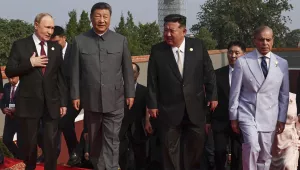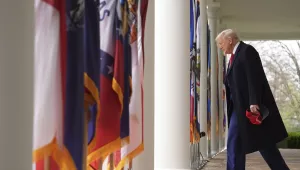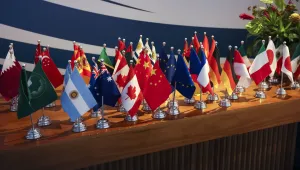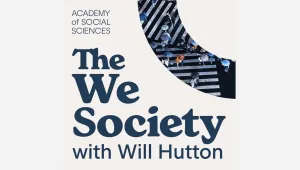
S.T. Lee Professor of U.S.-Asia Relations, Harvard Kennedy School
Member of the Board, Belfer Center
Quick Takes
Quick perspectives on today's pressing topics
-
 ASSOCIATED PRESS - Esteban Felix
ASSOCIATED PRESS - Esteban FelixU.S. Intervention in Venezuela: What Happens Next?
The U.S. attack on Venezuela has led some to speculate that China might feel emboldened to accelerate a Taiwan invasion, arguing that if the United...
-
 Associated Press - Alexander Kazakov, Sputnik, Kremlin Pool Photo
Associated Press - Alexander Kazakov, Sputnik, Kremlin Pool PhotoChina's Victory Day Parade: Xi Jinping hosts Russia's Vladimir Putin and North Korea’s Kim Jong Un
It’s a remarkable, historic success that 80 years after World War II, Japan and Germany have become vital U.S. allies. But as Beijing...
-
 AP Photo/Evan Vucci
AP Photo/Evan VucciPresident Trump's Liberation Day
While most discussions of tariffs focus on their political or economic impact, we should also consider their effects on public health. The toll of...
-
 AP/Evgeniy Maloletka
AP/Evgeniy MaloletkaUkraine, Three Years Later: What Comes Next?
Recent developments in the war in Ukraine have made it increasingly clear that its course will be dictated not by rhetoric, but by the balance of...
-
 Belfer Center
Belfer CenterU.S. Court of Appeals Holds Oral Arguments on Lawsuits by TikTok and ByteDance
Congress is currently debating bills that would ban TikTok in the United States. We are here as technologists to tell you that this is a terrible idea...
Rana Mitter is S.T. Lee Chair in US-Asia Relations at the Harvard Kennedy School. He is the author of several books, including Forgotten Ally: China’s World War II (2013) which won the 2014 RUSI/Duke of Westminster’s Medal for Military Literature, and was named a Book of the Year in the Financial Times and Economist. His latest book is China’s Good War: How World War II is Shaping a New Nationalism (Harvard, 2020). His writing on contemporary China has appeared recently in Foreign Affairs, the Harvard Business Review, The Spectator, The Critic, and The Guardian. He has commented regularly on China in media and forums around the world, including at the World Economic Forum at Davos. His recent documentary on contemporary Chinese politics "Meanwhile in Beijing" is available on BBC Sounds. He is co-author, with Sophia Gaston, of the report “Conceptualizing a UK-China Engagement Strategy” (British Foreign Policy Group, 2020). He won the 2020 Medlicott Medal for Service to History, awarded by the UK Historical Association. He previously taught at Oxford, and is a Fellow of the British Academy.
-
S.T. Lee Professor of U.S.-Asia Relations, Harvard Kennedy School
Member of the Board, Belfer Center





